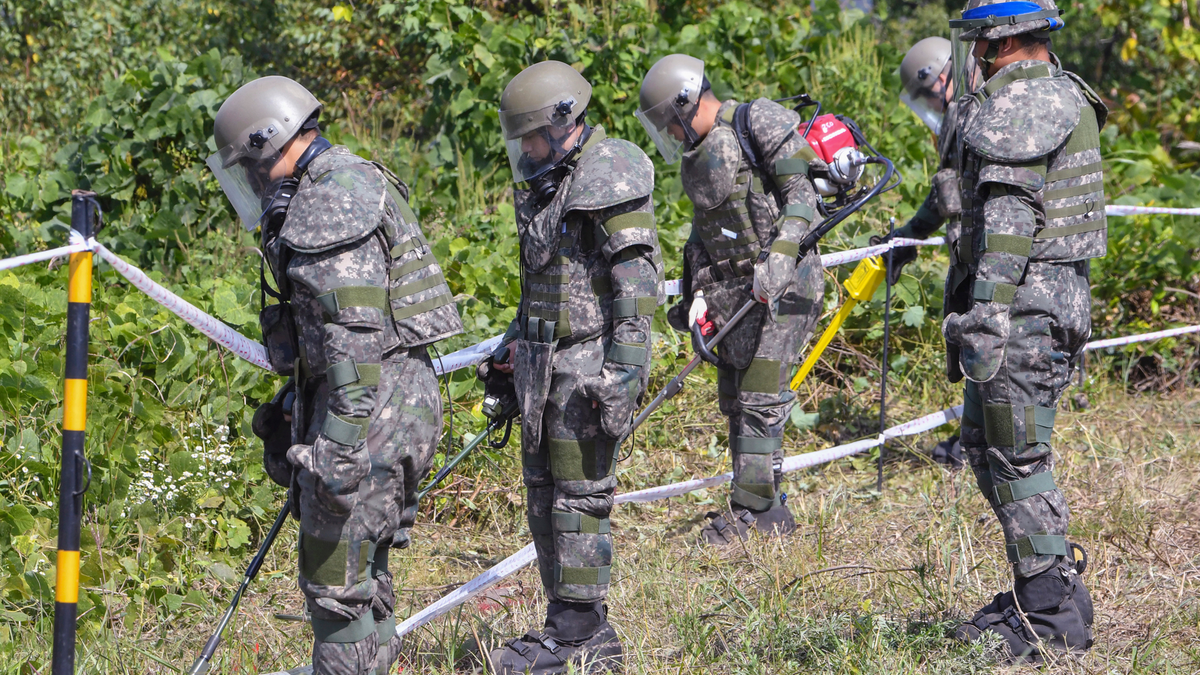
FILE - In this Oct. 2, 2018, file photo, South Korean soldiers search for landmines inside the Demilitarized Zone (DMZ) that separates the two Koreas in Cheorwon, South Korea. South Korea on Thursday, Oct. 25, 2018, said it has discovered what could be Korean War remains at a frontline area where it's jointly clearing mines with North Korea. (Song Kyung-Seok/Pool Photo via AP. File)
SEOUL, South Korea – South Korea has discovered what could be Korean War remains at a front-line area where it's jointly clearing mines with North Korea, Seoul officials said Thursday.
The two Koreas began removing mines from one of the heaviest Korean War battle sites at their border on Oct. 1 before starting their first joint searches for war remains. The joint searches were among a package of agreements the Koreas' defense ministers struck on the sidelines of their leaders' summit last month.
Earlier this week, South Korean troops found what it believes are two sets of human remains during the demining work. A bayonet, bullets and a South Korean army identification tag with the name "Pak Je Kwon" were also found along with the bones, Seoul's Defense Ministry said in a release.
The ministry said military records show Pak was a sergeant first class who died in a battle there in 1953 in the final weeks of the 1950-53 Korean War.
Pak has two surviving sisters and authorities will take their DNA samples to find out if parts of the bones belong to him, the ministry release said.
The area, known as Arrowhead Hill, is where South Korean and U.S.-led U.N. troops repelled a series of Chinese attacks to secure a strategically important hilltop position. South Korea said the remains of an estimated 300 South Korean, French and U.S. soldiers are believed to be in the area. The remains of a large number of Chinese and North Korean soldiers are also likely there.
Under their September deals, the two Koreas are to continue demining work at the Arrowhead Hill until Nov. 30. They plan a seven-month joint excavation for war remains next year.
The two Koreas are separately taking steps to disarm their only shared border village of Panmunjom in a different section of the Demilitarized Zone. They've completed removing mines and aim to withdraw weapons and guard posts this week. The September deals also require the Koreas to establish buffer zones along the border and withdraw some of the guard posts in other front-line areas.
Since the war's end, the Koreas remain split along the 248-kilometer (155-mile) -long border, called the DMZ. An estimated 2 million mines are peppered inside and near the DMZ, which is also guarded by barbed wire fences, tank traps and combat troops on both sides.
The Korean War left millions dead or missing, and Seoul officials believe the remains of about 10,000 South Korean soldiers alone are still inside the DMZ.







































